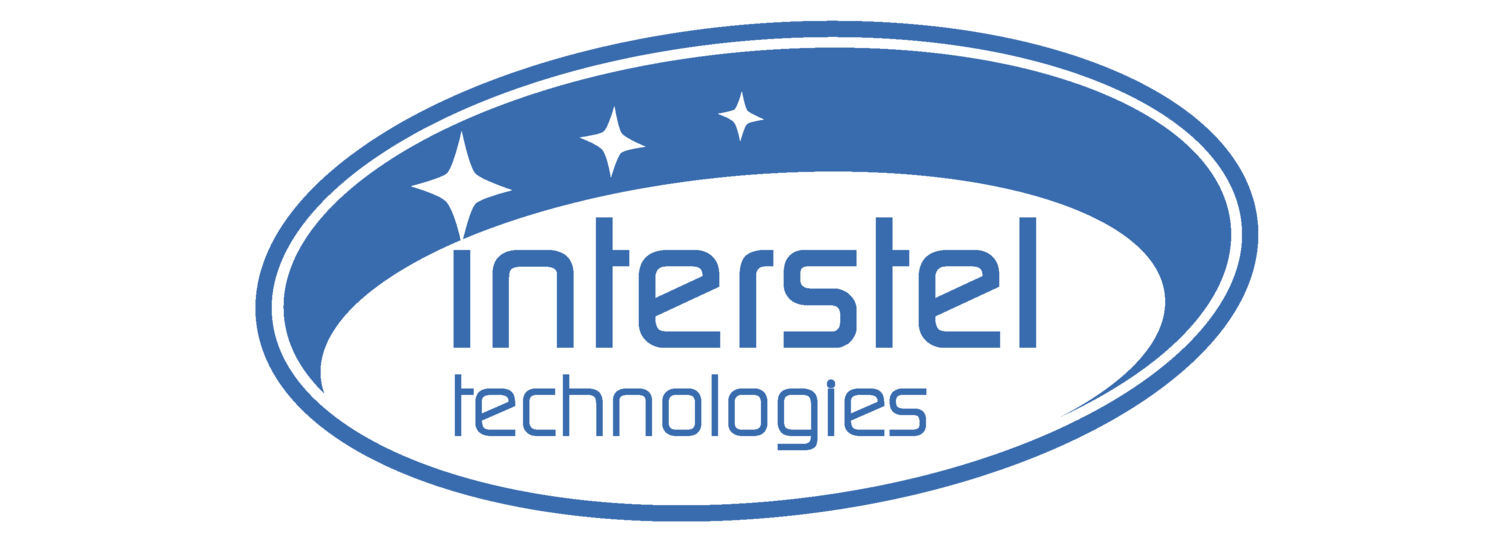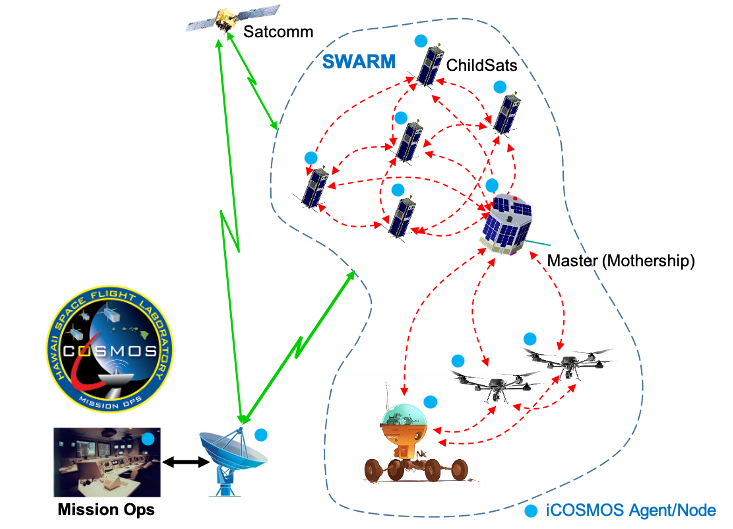INTERSTEL TECHNOLOGIES SELECTED FOR NASA STTR PHASE I CONTRACT
Honolulu, HI (August, 2020) - On June 30, 2020 NASA announced the 57 small business company (SBC) – non-profit research institution (RI) teams that were selected to negotiate a contract with NASA for Phase I of the Small Business Technology Transfer Program (STTR). Interstel Technologies was the only SBC selected from Hawaii. Interstel™’s RI partner is the University of Hawaii at Manoa (UHM). This was Interstel™’s first time to apply for a STTR award. The title of the winning proposal was “Cooperative Control and Localization of Multiple Spacecraft using a Multi-Agent Mission Operations System”. The Principal Investigator (PI) is Dr. Trevor C. Sorensen (CEO of Interstel Technologies, Inc.) and the RI-PI is Dr. Zhuoyuan Song (Department of Mechanical Engineering). The Jet Propulsion Laboratory (JPL) was the NASA center overseeing the program and technical aspects of the contract.
iCOSMOS-Swarm™ mission concept
The following is a synopsis of the project:
Multi-satellite swarms are becoming popular due to their low costs and short development time. Instead of large and costly monolithic satellites, small satellite swarms can be flown as distributed sensing applications for atmospheric sampling, distributed antennas, synthetic apertures among other exciting applications, delivering an even greater mission capability. This Phase-I project contributes to the development and demonstration of a mission operations system for robust, coordinated operation of mobile agent swarms in dynamic environments. Through a collaboration with the University of Hawai`i at Manoa, Intersetel Technologies’ Comprehensive Open-architecture Solution for Mission Operations Systems (iCOSMOS™) will be enhanced to coordinate and control swarms of space vehicles and other assets. The proposed iCOSMOS-Swarm™ will enable motion planning for large numbers of agents in densely crowded areas and robust position estimation with built-in cooperative localization. The major tasks include (1) the development of a scalable multi-agent coordination module to coordinate large agent swarms, a multi-nodal software architecture for diverse (heterogeneous) assets, and a hierarchical cooperative localization module for robust inter-agent positioning, (2) enhanced system performance with improved data handling and nodal message passing and dynamic system configuration for node addition and removal, and (3) significantly enhanced simulation capabilities to support up to at least 100 simultaneous nodes, end-to-end simulation of 20 satellite nodes in real time or up to at least 1000x realtime, and full visualization of the mission plans before execution. The anticipated results include the software source code for iCOSMOS-Swarm™ and the results from a baseline benchmark mission with one microsat and 4~8 CubeSats to collect dynamic, multi-dimensional data sets over a wildfire outbreak event through the use of multiple detectors, spread out in time, space and spectrum.
iCOSMOS-Swarm™ will enable scalable mission control for multiple diverse assets simultaneously for terrestrial or planetary Earth, lunar, or Mars missions with diverse NASA assets including aerial, ground, subterranean, and underwater agents. Example missions include, but are not limited to, monitoring of large-scale dynamic events (e.g. wildfire outbreak) with convoy agents and following sensing agents or the formation and maintenance of leader-follower satellite constellation for volumetric remote sensing.
iCOSMOS-Swarm™ will also benefit other government agencies in space assets management, fast-growing startup companies in need of low-cost structures to control and support small satellites, academic institutes in supporting space technologies education at low costs, and mission control and management for open-access or shared robotics testbeds, warehouse robots, or other non-space applications.
The contract started on 8/31/2020 and ended on 9/30/2021 (13 months). The value of the contract was almost $125,000 (shared by the SBC and RI). The Interstel™-UHM team successfully completed their Phase I project and submitted their final report at the end of the contract. The Interstel™ team consisted of two engineers and three programmers, while the UHM team consisted of one engineer, one graduate student, and one undergraduate student.
- About Interstel Technologies
Interstel Technologies specializes in multi spacecraft mission operations software. The main software product being developed by Interstel™ in collaboration with the Hawaii Space Flight Laboratory is the iCOSMOS™ - Interstel’s Comprehensive Open-architecture Solution for Mission Operations Systems.

